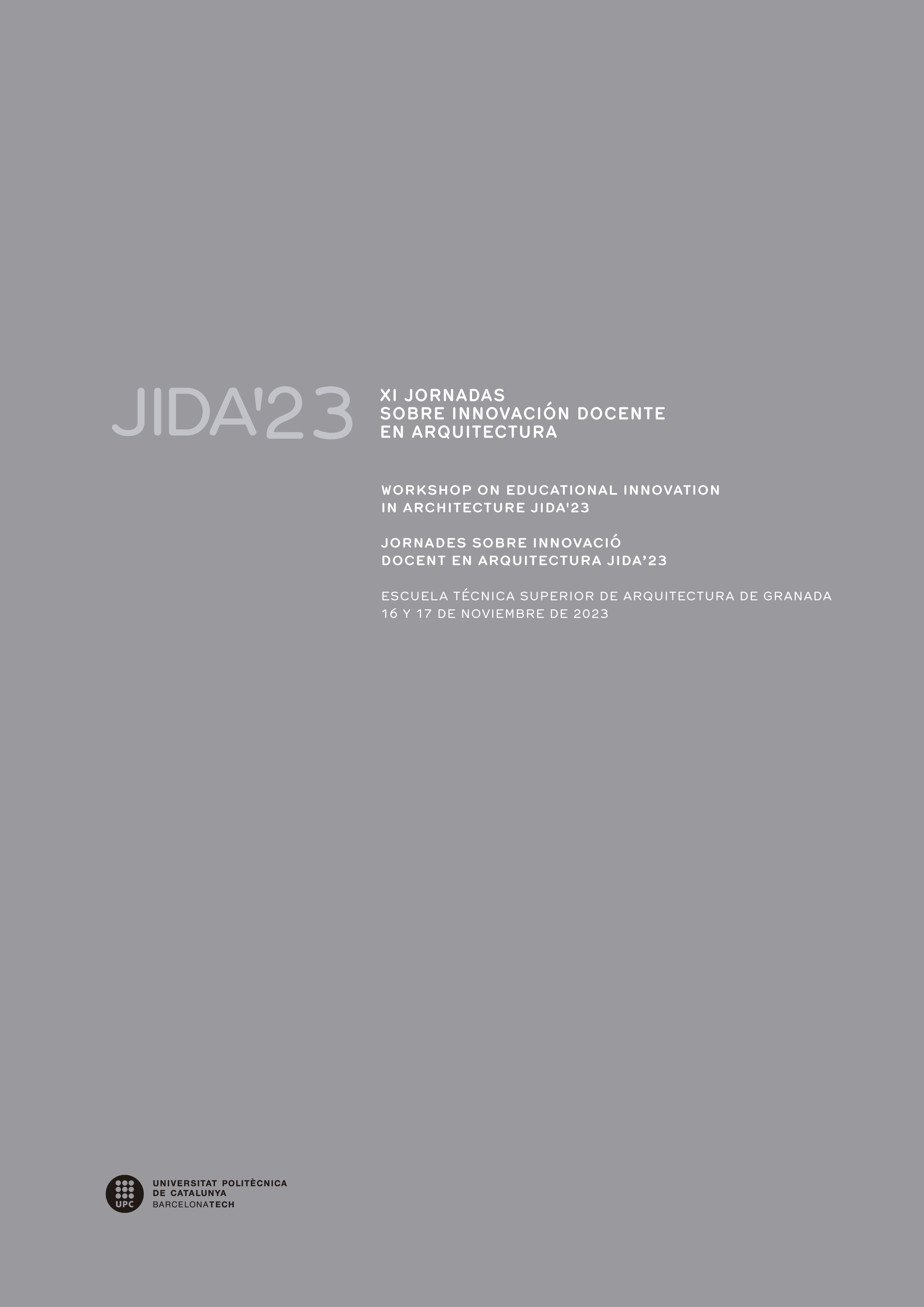Service-Learning: Start designing from social engagement
DOI:
https://doi.org/10.5821/jida.2023.12309Keywords:
Architectural design, learning-service, competencies, horizontal dynamics, social commitmentAbstract
The complexity of the reality around us requires new methodological approaches and new pedagogical frameworks to train professionals and individuals capable of adapting to changes. In this paper, the potential of Service-Learning is explored within the framework of a school of architecture, using, as an example, the experience carried out in two exercises of a course of Architectural Design: “(agri)CULTURA” and “Habitat (extra)ordinario”. The teaching-learning process within the framework of this S-L benefits from action in a community in which it is intended to propose changes and improvements responding to the needs of its members. The responses to the self-assessment surveys of students, which show generally positive results, allow us to elaborate a series of hypotheses that can induce significant changes in education in Architecture. To conclude, a number of proposals for improvements to future experiences with similar characteristics are presented.
References
Buber, Martín. 1998. Yo y Tú. Madrid: Caparrós Editores.
Deeley, Susan J. 2016. El Aprendizaje-Servicio En Educación Superior: Teoría Práctica y Perspectiva Crítica. Madrid: Narcea.
Durán Calisto, Ana María y Christine Van Sluys. 2019. «Mi taller es el barrio. The Neighborhood is my Studio». En VII Jornadas sobre Innovación Docente en Arquitectura (JIDA’19) editado por Daniel García Escudero y Berta Bardí Milà. Barcelona: Universitat Politècnica de Catalunya. Iniciativa Digital Politècnica. <https://doi.org/10.5821/jida.2019.8356>
Freire, Paulo y Lilién Ronzoni. 2009. La educación como práctica de la libertad. Madrid: Siglo XXI.
Knowles, Malcolm. 2001. Andragogía: El Aprendizaje De Los Adultos. México: Oxford University Press.
Lévinas, Emmanuel. 1977. Totalidad e infinito. Salamanca: Sígueme.
Puig Rovira, Josep M.ª et al. 2011. «Aprendizaje-Servicio y educación para la Ciudadanía». Revista de Educación, número Extra 1: 45-67 <https://www.ub.edu/GREM/wp-content/uploads/Aps-y-educacio%CC%81n-para-la-ciudadan.pdf>
UNESCO. 2019. «Declaración mundial sobre la educación superior en el siglo XXI: Visión y Acción». Revista Educación Superior y Sociedad (ESS), 9(2): 97-113. <https://www.iesalc.unesco.org/ess/index.php/ess3/article/view/171>
Virgós Bel, Ferran y Domingo Peña, Joan. 2011. «Los nuevos estudios de ingeniería industrial en el marco de Bolonia». Técnica industrial, 293: 26-34 <https://www.tecnicaindustrial.es/wp-content/uploads/Numeros/78/1136/a1136.pdf>
Scheler, Max. 2003. Gramática de los sentimientos: lo emocional como fundamento de la ética. Barcelona: Crítica.



















